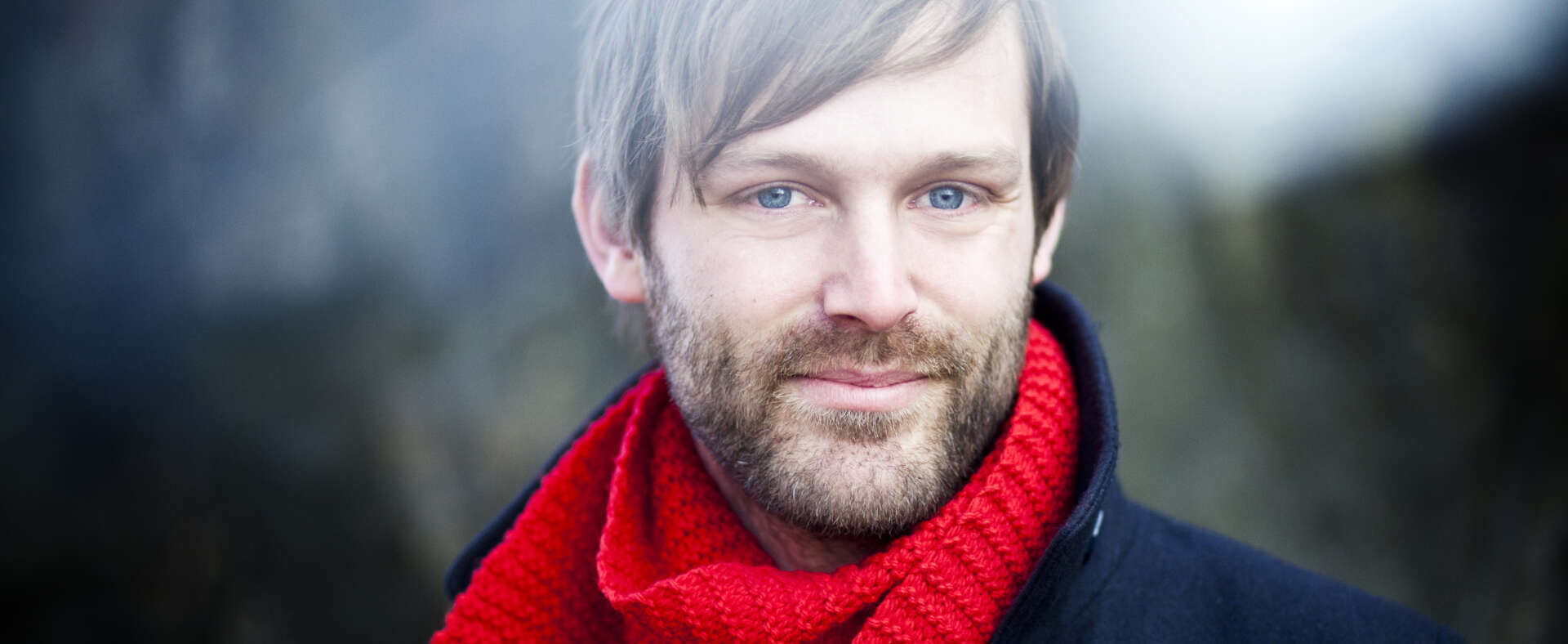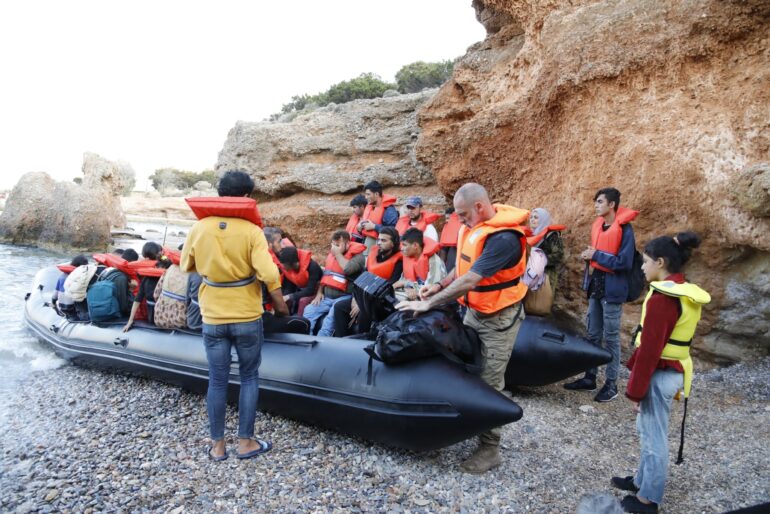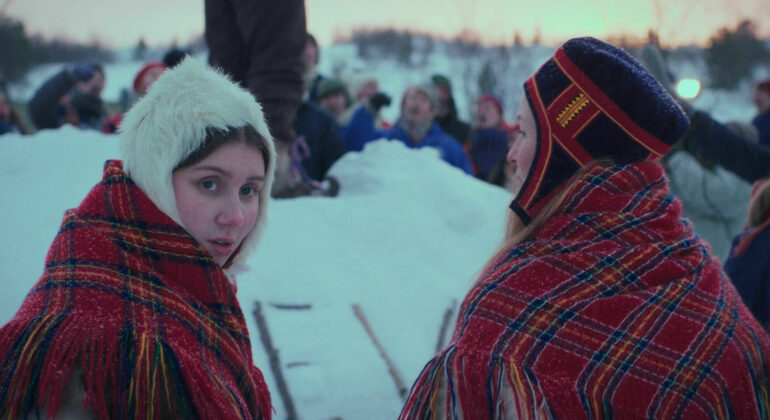
The artistic director highlights for us the festival’s programme and main themes.
How important is it for you to have double Palme d’or winner Ruben Östlund as Honorary President and director of the ‘This is Cinema!’ session for your first full year back to normal?
JH: We’ve actually spoken at length with Ruben about audience behaviour, while we were tempting him with the task of being our honorary president. We spoke about the role of cinema in today’s society cinema as a cultural, social, artistic space, with a shared forward-looking attitude and said: let’s see if we can bring the clock back to the 90s when arthouse cinemas were packed.
This cinema-going reflection and This is Cinema! event in Gothenburg [January 28] are all the more important as this is the festival’s full coming back after heavy restrictions due to Covid.
You will be fully on-site this year, but also offer Swedish cinemagoers the opportunity to watch a curated programme of 50 films online. Is this something that will be permanent?
JH: Yes some festivals have stopped their digital version, but we will continue to have an online showing in Sweden as we’re running all year round the successful Draken.se platform for arthouse films, so this made it easy for us to do a digital edition. But having the films screening online and most importantly at the festival is an experiment and we don’t have all the answers. The solution is not to go back but to face today’s market, in this day and age, and continuously search for the best way to show films to audiences.
With war in Ukraine and its impact on European nations and the global economy, it is understandable why you chose ‘Homecoming’ as main theme for this year’s edition. But could you take us through your decision-making process?
JH: ‘Homecoming’ is a theme that has always been a key topic in film history. So many of our most beloved stories are about someone coming home. It’s fundamental to film, and cultural history as a whole. Then in response to war in Ukraine, we‘ve initiated a residency programme, inviting filmmakers with their families to come to Gothenburg. This made us reflect on the concept of home - what it is. This idea for homecoming therefore partly came from the fact that we shared offices with those Ukrainian filmmakers.
Films illustrating this topic in the ‘Homecoming’ programme include Andreas Öhman’s One Day All This Will Be Yours which addresses the theme of children coming home to parents in a rural area. Who will then inherit the forest? This is key in Swedish culture, but the director addresses it in a contemporary way. There is also I Must Away by Dennis Harvey, about migrants and what is home for them.
We are also very proud to have legendary director Jan Troell as recipient of our Dragon Honorary Award, whose iconic film The Emigrants is the fundamental story about leaving and coming home in Swedish film history.
The opening film Exodus is also totally related to this theme. What made it a perfect festival film opener?
JH: It’s about leaving one home and looking for a new home. It’s a powerful story. Plus there is a powerful scene of Gothenburg harbour in the film.
Göteborg has always been very committed to defending democratic values and filmmakers, victims of authoritarian regimes. This year your spotlight is Iran through several films in the programme and Zar Amir Ebrahimi as president of the Nordic competition jury…
JH: Yes, we will address the issue of the current repression in Iran and screen several films from Iranian filmmakers such as a doc by Mania Akbari How Dare You Have Such a Rubbish Wish, as well as Jafar Panahi’s No Bears, and Mani Haghighi’s Subtraction with Taraneh Alidoosti in the lead, who was arrested and now just released from prison.
Zar Amir Ebrahimi will indeed take part in a demonstration before the screening of Subtraction, to support the detained filmmakers and the people of Iran struggling there. Zar Amir has an amazing talent as an actress and integrity, so we’re very proud to have her on the jury of the Nordic competition.
Alicia Vikander is another high-profile actress set to attend the festival and to promote the film lab bearing her name. What can you say about this programme?
JH: It’s another great pleasure for us to have her. She will be in Gothenburg to see the result of the first year of the film lab, which offers opportunities for more young filmmaking talent to enter the industry. She is very committed to the programme and we could not have done it without her.
You have more than 250 films on your programme, which is more than in 2022. Could you highlight a few Nordic films that will have their world premiere?
JH: We do have more films that in 2022 but less than in 2021 and actually five years ago, we strategically decided to cut down on the number of films to give more space and visibility to each film. We have a double mission of platforming the best Nordic films to the world but also to take the best films from the world and bring them to the Nordics.
Among major world premieres, I would cite the Danish film Empire by Frederikke Aspöck in the Nordic Film competition which deals with the Danish colonial past. This seems to be a common thread with other Nordic films such as Let the River Flow which deals with the fate of Sámi people and Norway’s colonial past.
Then I’d like to highlight the documentary Hypernoon by Mia Engberg, part of a trilogy films with Belleville Baby and Lucky One. I think Mia is one of the most interesting documentary filmmakers today in the Nordics. Among the world premieres, there is also the afore-mentioned One Day All This Will Be Yours.
What is your view of the quality of Nordic films, having gone through a plethora of films for your selection process. Are we in good hands?
JH: Absolutely! There is a very high level of artistic quality in Nordic filmmaking, plus there are interesting perspectives. One very important thing is that filmmakers are looking outwards and at the Nordics in relationship with the world.

